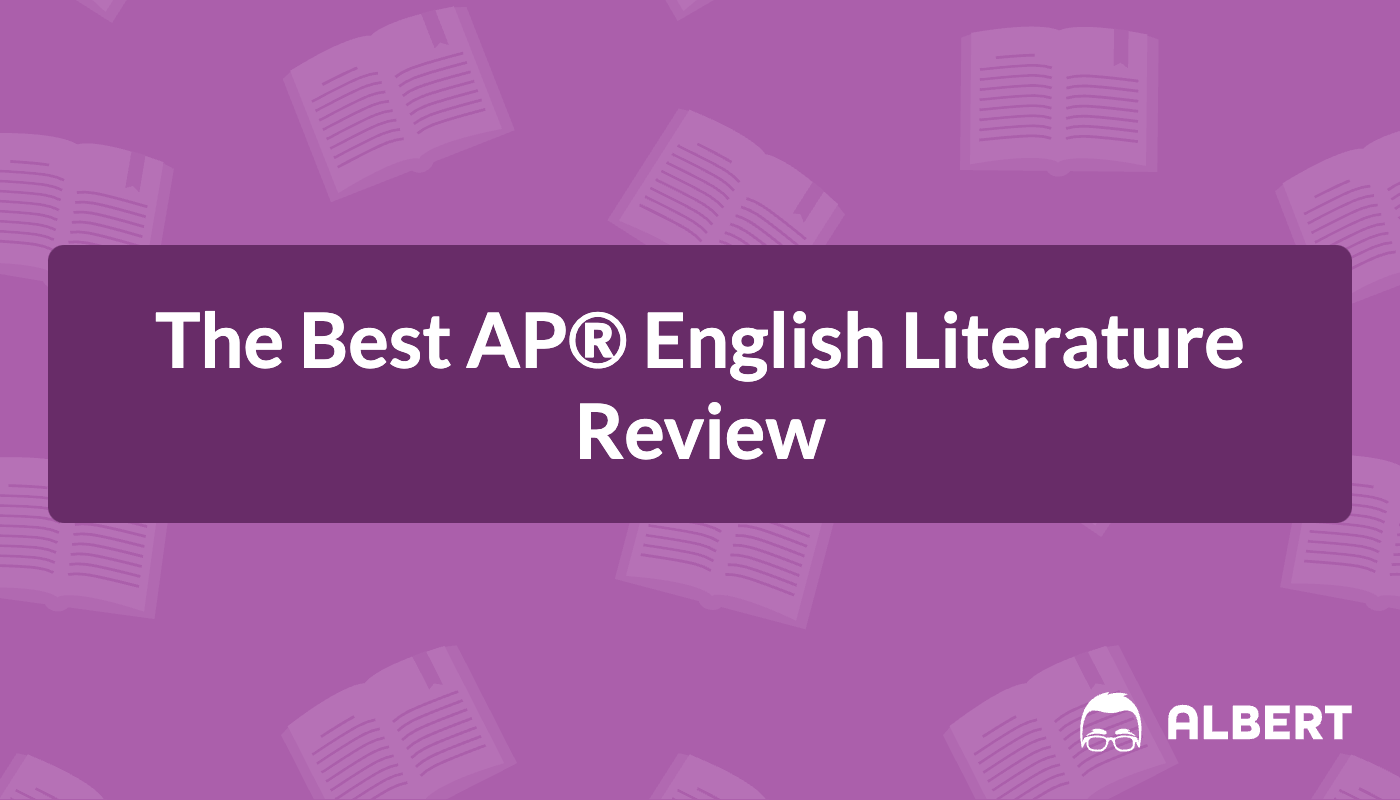AP® English Literature
The Best AP® English Literature Review: Topic Summaries, Examples, and Free Practice
Welcome to Albert’s collection of science topic reviews for teaching and reviewing AP® English Literature. Teachers and students can explore our easy-to-follow guides below for use at home or in the classroom.
Overview and Scoring
What are the AP® English Lit exams like? How are they scored?
Discover the AP® English Literature exam format, key components, and scoring guidelines. These articles help you understand how essays and multiple-choice questions are evaluated, empowering you to boost your performance and achieve your target score.
Study and Test Prep
How can I master AP® English Literature? What strategies boost test performance?
Dive into articles that break down AP® English Literature exam content, including key themes and literary devices. Discover effective study techniques and test-taking strategies to improve your confidence and enhance your scores.
Character
What motivates a character? How do relationships between characters reveal deeper traits?
The review articles below explore essential strategies for analyzing character in literature--one of the core skills on the AP® English Literature exam. From tracking how a character changes to interpreting how relationships shape behavior, these resources help you uncover the deeper meaning behind what characters say and do.
Setting
What details reveal a story's setting? How does setting shape the story?
The review articles below focus on how authors use setting to build meaning and mood in a literary work. From identifying key descriptive details to analyzing how setting influences characters and events, these resources will help you master one of the foundational skills on the AP® English Literature exam.
Structure
How is a story structured? Why does the plot unfold in a certain order?
The review articles below break down how authors organize events to create meaning, tension, and theme. From analyzing conflict and contrast to examining key turning points, these resources will help you understand how structure shapes a literary work—an essential skill for the AP® English Literature exam.
Narration
Who is telling the story? How does point of view shape what we see?
The review articles below explore how narration and point of view influence a reader’s understanding of a literary text. From analyzing a narrator’s reliability to examining how diction and detail reveal perspective, these resources will help you build core analysis skills for the AP® English Literature exam.
Figurative Language
What does the author really mean? How do literary devices create deeper meaning?
The review articles below explore how figurative language brings depth and complexity to literature. From metaphors and symbols to imagery and allusions, these resources will help you analyze how authors use language to convey meaning—an essential skill for the AP® English Literature exam.
Literary Argumentation
How do you build a strong literary argument? What makes evidence effective in an essay?
The review articles below break down the essential components of writing literary analysis. From crafting a clear thesis to selecting strong evidence and explaining your reasoning, these resources will help you master the writing skills needed for success on the AP® English Literature exam.
Books and Terms
What are the must-read books for AP® English? How can literary terms enhance analysis?
Dive into essential AP® English Literature books and discover key literary terms. Learn how to analyze texts effectively and enhance your interpretations to excel in exams.
Interested in a school license?
➜ SAT® & ACT®
➜ AP®
➜ ELA, Math, Science, & Social Studies
➜ State assessments
Options for teachers, schools, and districts.

